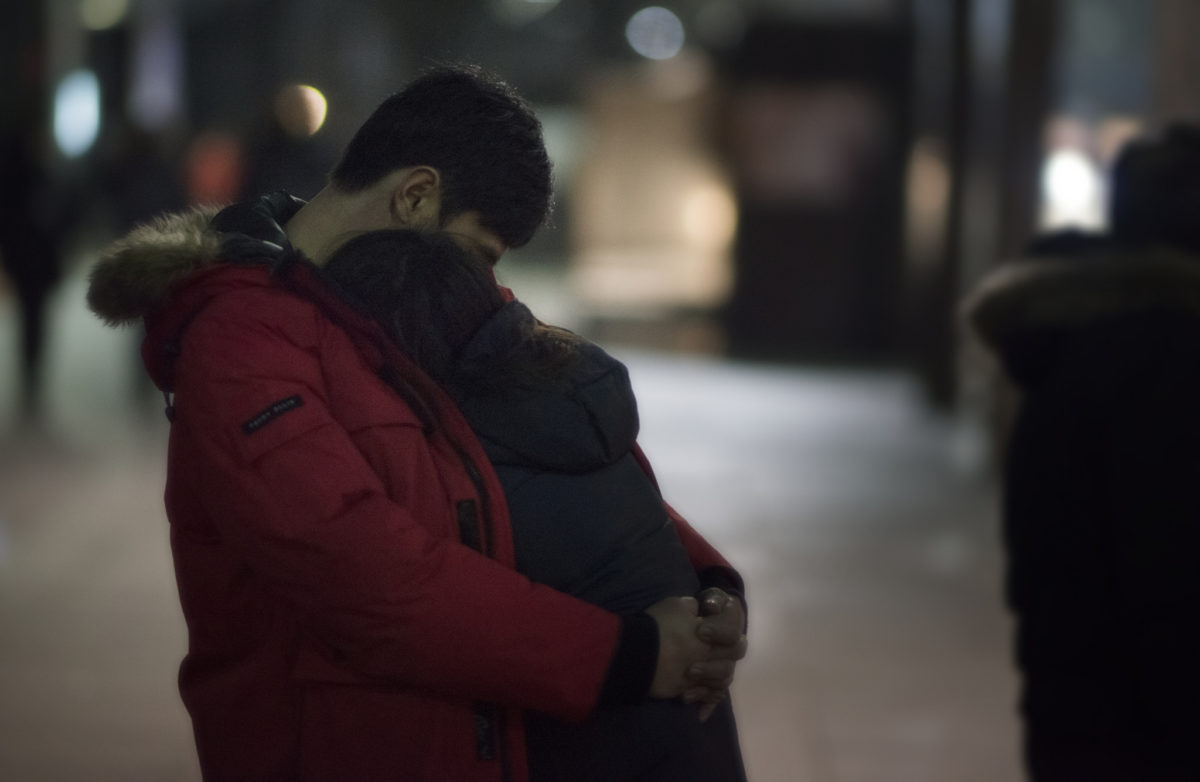Rock-a-my soul in the bosom of Abraham,
Rock-a-my soul in the bosom of Abraham,
Rock-a-my soul in the bosom of Abraham,
Oh, rock-a-my soul.
You know that old African American spiritual, right? Based on this passage from Luke.
“Wait a minute,” you might be saying. “I didn’t hear any bosom talk in that Gospel text.” No. No, you didn’t.
That’s because the church is quite skilled at censorship.
It censors what we wear. Think about it. While our different denominations and traditions dictate appropriate clergy attire that we have either chosen to don or not, we still find ourselves having to make decisions about clerical garb that are by no means benign. What we wear expresses who we are and how we want to be seen — or not seen. What we wear is connected to questions about our perceived authority. What we wear can either hide our bodies or admit that we have them.
The church censors what we want to say, what we need to say. We fear rejection or retaliation. We pray for the possibility of prophetic preaching only to back down when we wonder if the pulpit really can be a place of truth. Rather than take risks, we preach safe sermons, which reminds me of a quote I tweeted this past week, “It’s amazing that we Christians have managed to make a guy who turned water into wine at a party seem boring.”(Jon Acuff)
This is all too often the case — in our ministry, in our preaching. This church-sanctioned censorship comes from a lot of different venues — denominational expectations, synodical rubrics, long-held traditions, theological commitments.
The church censors being yourself. But, what can be even more difficult is when this censorship comes from your very own self, calling you away from who God has called you to be. You know those moments, right? That moment when you stop yourself before questioning a long held theological belief. That moment in text study when you bite your tongue before suggesting a different perspective on a biblical text. That moment when you are certain that you are a crappy pastor instead of reminding yourself that you wouldn’t be here without God thinking you should be.
That moment you stop yourself from leaning into the comfort of God.
And, the church censors what we read. Case in point, the translation of the Gospel lesson, which should really sound something like …
“The poor man died and was carried away by the angels to be at the bosom of Abraham. The rich man also died and was buried. In Hades, where he was being tormented, he looked up and saw Abraham far away with Lazarus at his bosom.”
That’s right. Not once, but twice. Twice we are told that Lazarus is at the bosom of Abraham.
Our translations censor words that might lead to inappropriate thoughts about God.
Our judicatories censor claims of God’s love for the poor, the marginalized, the oppressed with busy work and paper work that keeps from the real work of the Kingdom of God.
Our interpretations censor images for God by replacing intimacy with explanation.
And so bosom of Abraham becomes simply the afterlife, heaven, if you will. Or, for Luther, the bosom of Abraham was the Word of God.
But what if the bosom of Abraham is truly the intimacy it implies? Comfort for Lazarus that he never, ever received. A sense of belonging for an overlooked man whom no one was willing to receive as their own. That feeling of knowing your needs will be tended — and all of them.
When we censor the intimacy Lazarus finally got to experience, we end up placing him by the rich man’s gate once again, covered in sores, hungry, thirsty, alone, with dogs as his only company.
While this may be a parable, Lazarus is real.
He is Elizabeth, whom ageism casts aside.
He is Mary, whom classism deems unworthy.
He is the woman who anoints Jesus, whom sexism makes sure to spend more time pondering the possibilities and potentialities of her sin rather than point out the power of her act.
You see, when we censor God, we censor our own response to those the world passes by.
We censor our grief (Amos 6:6). We censor our concern. We censor our compassion. We censor our compulsion to care for those whom God sees and the world doesn’t. And we censor the ability to care for ourselves.
But finally, we censor our conviction that God is about the business of raising the dead.
Notice that is the note on which the parable ends. We are reminded once again that seeing the un-seeable, caring for the disenfranchised, feeding the hungry, clothing the naked, setting the oppressed free are not only marks of discipleship or acts that contribute to the reality of the Kingdom of God in our midst (Psalm 146). They are moments of resurrection. They bring the dead to life.
The world will try to censor the Gospel with its reasoning and rationality. The church will continue to cause the Gospel to be heard in this world, yet it will also continue to tame that Gospel because of societal pressures. Our ministries will make censoring the Gospel sometimes easier than proclaiming its truth. But we preachers know better — someone did rise from the dead.
Karoline

